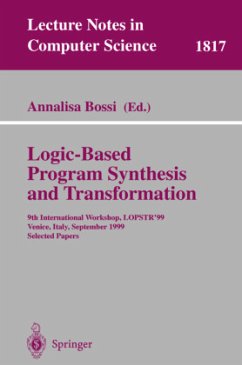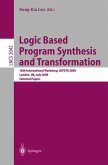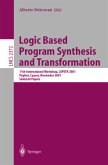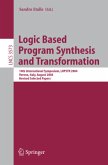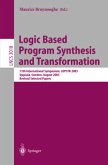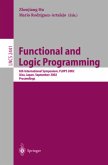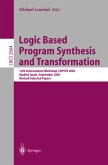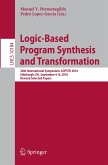This volume contains the proceedings of the ninth international workshop on logic-based program synthesis and transformation (LOPSTR'99) which was held in Venice (Italy), September 22-24, 1999. LOPSTRistheannualworkshopandforumforresearchersinthelogic-based program development stream of computational logic. The main focus used to be on synthesis and transformation of logic programs, but the workshop is open to contributions on logic-based program development in any paradigm. Previous workshops were held in Manchester, UK (1991, 1992), Louvain-la-Neuve, B- gium (1993), Pisa, Italy (1994), Arnhem, The Netherlands (1995), Stockholm, Sweden (1996), Leuven, Belgium (1997), and Manchester, UK (1998). LOPSTR is a real workshop in the sense that it is a friendly and lively forum for presenting recent and current research as well as discussing future trends. Formal proceedings of the workshop are produced only after the workshop and contain only those papers selected by the program committee after a second refereeing process. The program committee of LOPSTR'99 accepted 20 extended abstracts for presentation at the workshop; then selected 14 papers for inclusion in the po- workshop proceedings. Selected papers cover all the main streams of LOPSTR's topics: synthesis, specialization, transformation, analysis, and veri?cation. Ve- ?cation, transformation, and specialization methods are applied to functional, constraint, logic, and imperative programming.

